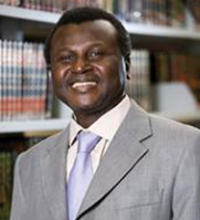
By Dr Alhagi Manta Drammeh
Following the tragic attack on the satirical Magazine of Charlie Hebdo in Paris, there have been different reactions from a show of solidarity with the victims, “Islamic terrorism” to Far Rights assertion that Islam is not compatible with Western values. In as much as we stand in solidarity with the victims of this terrorist attack on France, we similarly condemn the attack on mosques and Islamic centres in different parts of France.
Islam is not a new phenomenon in the West; it is indeed part and parcel of the Western social fabric. Muslims fought and died in both the first and second world wars to defend liberty, equality and fraternity, the very essence of the French Republic. What we are witnessing in France, Iraq, Syria, Nigeria and elsewhere is not a religious war. It is a political, sociological and economic issue par excellence. Muslims have existed in Europe for centuries and thequestionsmportant component of the European society. In fact, Muslims constitute second largest religious community in many European countries. Early Muslims played a crucial role in translating the Greek philosophy and civilisation into Arabic that was in turn translated into other European languages.
Proponents of clash of civilisations would like us to believe that there is an inevitable clash of civilisations or a kind of religious war. However, I refute the claim of clash of civilisations. I think that kind of assumption is based on the lack of the knowledge of history and intellectual superficiality. Islam, Judaism and Christianity are all part of the Abrahamic tradition. Thus, they share common ethical values. Contrary to the clash of civilisations theory that is based on the hegemonic vision of global politics, countries should revisit and reconsider their social policies vis a vis the so-called ethnic/religious minorities and foreign policies. In many European countries, ethnic minority communities feel despondent and hopeless. The sense of marginalisation and ghettoization has to be seriously addressed.
It is difficult to absorb, but it is a difficult reality that the Foreign policies in Iraq and Syria for example have to be reconsidered. Some ordinary Muslims question why the West is not intervening in Syria? But they are in Iraq when the alarm of ISIL was rung. Moreover, there seems to be a calculation not to openly intervene in Syria when it is clear that there are serious violations of human rights and alleged crimes against humanity. Other questions whether this is duplicity of standards or promotion of national geo-strategic interests of individual countries?
Muslims organisations have to be further empowered to play more positive roles in the efforts of integration and multiculturalism. The governments should take more steps in terms of providing good education and employment opportunities for the minorities in order to promote social inclusion. Terrorism cannot and should not be reduced to merely security. It is a combination of ideological, cultural, political, social, educational and economic factors. Therefore, deeper and more profound responses from legal to social policies should be considered. The victims were from different religious and cultural backgrounds. Similarly, terrorism has no religion, race or culture. In as much as we promote freedom, we should caution against inflammatory statements that might lead to hatred and flare up sentiments. Freedom has to be exercised with responsibility. More important, people have to engage each other in intellectual and legal discussion to respond to the challenges of society in their different manifestations. Finally, let us reflect together on the following Qur’anic passage:
“O people, indeed We have created you from male and female and made you peoples and tribes that you may know one another. Indeed, the most noble of you in the sight of Allah is the most righteous of you. Indeed, Allah is Knowing and Acquainted” (Al-Hujurat 49:13)
Timbuktu international Research Centre website http://www.tircglasgow.org.uk/
Dr Manta can be reach on: amdrammeh@hotmail.com
Ends
